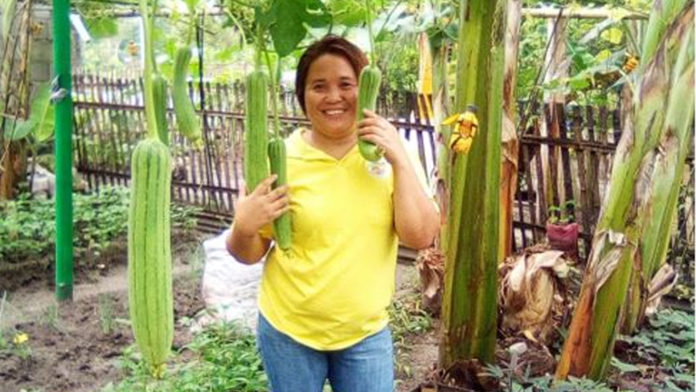Pinky is reaping the fruits of her labor and is also giving back to her community.
“We were trained by World Vision on natural farming. I started with backyard gardening and eventually saw that it is good for business,” Pinky shares.
In 2018, she and her family started a small vegetable farm.
“Our land can accommodate at least 5000 tomato plants so we maximized the space. Half of it was used for tomatoes and the rest was for other vegetables like squash, eggplants, bittergourd and others,” she adds.
Since then, she’s had loyal customers who buy her produce in bulk. She harvests her tomatoes every three months and each time, she would get an income of at least P20,000 (USD400). This does not include her income from other vegetables.
Until COVID-19 pandemic happened.
“It affected our business because of the limited movement. We were in the midst of harvesting from our 2500 tomato plants when the crisis happened,” she shares.
While it indeed lessen her income, Pinky also considered it as an opportunity to reach out to her neighbors. She packed her harvested vegetables, bought a sack of rice and canned goods and distributed those to her neighbors.
“I am still grateful because we have enough to sustain us while on community quarantine. Other families in our community are struggling so I had to do my share, even if I lost income,” says Pinky.
Pinky credits her better understanding of her community’s situation to World Vision. She has been a child monitor since 2014. She has also been active in child protection initiatives after she was trained on reporting and managing child protection incidents. When she saw how natural farming has changed her family’s life for the better, she has also been advocating for it to other families.
“I used to be very shy. You wouldn’t hear me say a thing if I am not familiar with you. By being exposed as a World Vision volunteer, I came to know my neighbors, including their struggles, so I know how COVID-19 is impacting them now. I am glad to be of help even in a small way,” ends Pinky.







